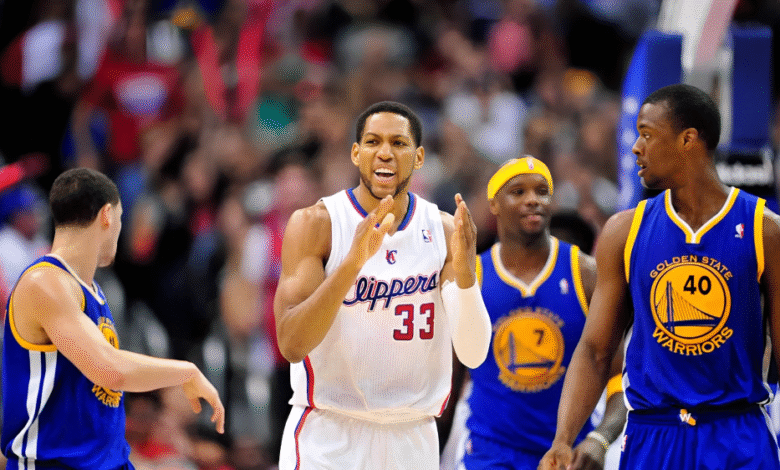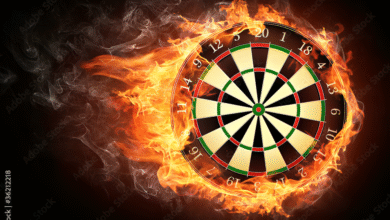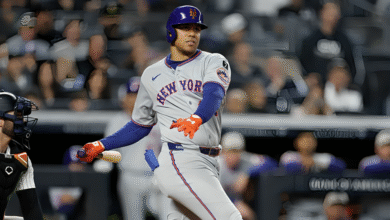Jehovah Witness NBA Players Faith on the Court and Beyond

In the high-stakes world of professional basketball, where athletic prowess meets intense scrutiny, a small but notable group of athletes stand out for their commitment to faith. Jehovah Witness NBA players represent a unique intersection of spirituality and sports, navigating the demands of the NBA while adhering to the principles of their religion. These individuals often face challenges that go beyond the game, balancing rigorous training schedules with religious obligations like door-to-door ministry and Bible study. This article explores the stories of Jehovah Witness NBA players, highlighting how their beliefs have shaped their careers and lives. From early retirements driven by devotion to overcoming personal hardships through faith, the journeys of these offer inspiring insights into resilience, priorities, and the power of conviction.
Jehovah’s Witnesses, a Christian denomination founded in the late 19th century, emphasize a literal interpretation of the Bible, rejecting practices like blood transfusions, military service, and national anthem participation. For Jehovah Witness NBA players, this can mean standing apart during pre-game ceremonies or prioritizing community service over endorsements. Despite these hurdles, several have thrived in the league, proving that faith and fame can coexist. Let’s dive into their world, examining the key figures among and the broader implications of their choices.
Understanding Jehovah’s Witnesses in the Context of Professional Sports
Jehovah’s Witnesses believe in a strict moral code derived from the Bible, focusing on evangelism, family, and separation from worldly pursuits that conflict with their teachings. The religion discourages excessive materialism and encourages humility, which can clash with the NBA’s glamorous lifestyle of multimillion-dollar contracts and celebrity status. For Jehovah Witness NBA players, this means making deliberate choices to align their actions with their beliefs.
Sports, in general, pose unique challenges for followers of this faith. Competitive athletics often require travel, irregular hours, and physical risks that might involve medical procedures forbidden by the religion, such as blood transfusions in case of injury. Additionally, team bonding activities or nationalistic rituals can create tension. Yet, Jehovah Witness NBA players have found ways to integrate their faith, using their platforms to promote positive values like perseverance and community support.
The NBA, known for its diversity, has seen players from various religious backgrounds, including Muslims, Christians, and Buddhists., however, are a rarity due to the faith’s emphasis on full-time ministry over secular careers. Those who do participate often credit their upbringing or personal conversions for guiding them through the league’s pressures. This blend of spirituality and athleticism makes their stories particularly compelling.
Notable Jehovah Witness NBA Players: Their Careers and Faith Journeys
While the number of Jehovah Witness NBA players is small, their impact is significant. Here, we profile three prominent figures—Darren Collison, Danny Granger, and Dewayne Dedmon—who have openly embraced the faith. Each story illustrates how being one of the influenced their professional paths, from retirement decisions to overcoming adversity.
Darren Collison: Prioritizing Faith Over Fame
Darren Collison stands out among Jehovah Witness NBA players for his bold decision to retire at the peak of his career. Born on August 23, 1987, in Rancho Cucamonga, California, Collison grew up in a Jehovah’s Witness household, where Bible study and ministry were daily priorities. This foundation shaped his worldview from a young age.
Collison’s basketball journey began at Etiwanda High School, where he showcased his speed and playmaking skills. He went on to play college ball at UCLA, helping the Bruins reach the Final Four in 2007 and 2008. Drafted 21st overall by the New Orleans Hornets in 2009, he quickly established himself as a reliable point guard. Over his 10-year NBA career, Collison played for teams like the Indiana Pacers, Dallas Mavericks, Sacramento Kings, and Los Angeles Clippers, averaging 12.5 points and 5.0 assists per game.
What sets Collison apart as one of the is his 2019 retirement announcement at age 31. In a heartfelt letter, he explained that while he loved basketball, his faith and family came first. “I am one of Jehovah’s Witnesses and my faith means everything to me,” he wrote. “I receive so much joy from volunteering to help others and participate in a worldwide ministry.” This move shocked fans, as he was still in his prime and had averaged 11.2 points in his last season.
Post-retirement, Collison briefly returned in 2021, signing a 10-day contract with the Lakers amid injuries to their roster. He appeared in three games before stepping away again, reaffirming his commitment to faith-based work. Today, as one of the Jehovah Witness NBA players, Collison focuses on community outreach, inspiring others to prioritize spiritual fulfillment over material success. His story highlights the religion’s emphasis on service, showing how can use their influence for greater good.
Danny Granger: From All-Star to Devoted Believer
Danny Granger is another inspiring example among Jehovah Witness NBA players, known for his scoring prowess and quiet humility. Born on April 20, 1983, in New Orleans, Louisiana, Granger was raised in a Jehovah’s Witness family, attending Kingdom Hall meetings and engaging in door-to-door preaching as a child. This upbringing instilled values of integrity and perseverance that carried into his basketball career.
Granger’s path to the NBA wasn’t straightforward. He played college basketball at Bradley University before transferring to the University of New Mexico, where he averaged 19.5 points per game as a senior. Selected 17th overall by the Indiana Pacers in the 2005 NBA Draft, he spent nine seasons with the team, becoming a fan favorite. In 2009, he earned All-Star honors and the Most Improved Player award, averaging 25.8 points per game. His smooth shooting and defensive skills made him a cornerstone for the Pacers.
However, injuries derailed his career after 2012, leading to stints with the Los Angeles Clippers and Miami Heat before retirement in 2015. As one of the, Granger was baptized in 2017, two years after leaving the league. He has spoken about how his faith provided “serenity” during high-pressure games, helping him maintain composure amid the NBA’s chaos.
Since retiring, Granger has pursued philanthropy, advocating for mental health awareness and supporting communities in Haiti. His role as one of the Jehovah Witness NBA players extends to mentoring young athletes, encouraging them to balance ambition with spiritual grounding. Granger’s journey underscores the faith’s focus on inner peace, proving that can achieve excellence without compromising their beliefs.
Dewayne Dedmon: Overcoming Obstacles Through Faith
Dewayne Dedmon’s story as one of the Jehovah Witness NBA players is a testament to determination against the odds. Born on August 12, 1989, in Lancaster, California, Dedmon was raised by a devout Jehovah’s Witness mother who initially forbade him from playing sports, viewing them as distractions from faith. This created early conflicts, but Dedmon’s passion for basketball prevailed.
He didn’t start organized play until his senior year of high school, making his rise to the NBA remarkable. After attending Antelope Valley College and then USC, Dedmon went undrafted in 2013 but clawed his way into the league through the G League. He played for teams like the Golden State Warriors, Atlanta Hawks, Sacramento Kings, Miami Heat, and Philadelphia 76ers, known for his rebounding and shot-blocking. Over his career, he averaged 6.3 points and 5.8 rebounds per game.
As one of the Jehovah Witness NBA players, Dedmon credits his faith for helping him navigate hardships, including a challenging upbringing and late start in basketball. “My faith has helped me overcome a lot of hardships in my life,” he once shared. It taught him resilience and composure, essential traits in the NBA.
Now retired as of 2023, Dedmon continues to embody the principles of by focusing on family and community. His path illustrates how faith can fuel personal growth, turning potential barriers into stepping stones.
The Impact of Faith on Careers and Personal Lives
For Jehovah Witness NBA players, faith isn’t just a private matter—it’s a guiding force. It influences decisions like Collison’s retirement or Dedmon’s defiance of family expectations. These players often avoid the spotlight’s excesses, opting for modest lifestyles aligned with their religion’s teachings against materialism.
In the NBA, where injuries are common, the faith’s stance on blood transfusions poses risks, yet Jehovah Witness NBA players advocate for alternative treatments, showcasing their commitment. Their stories also inspire fans, demonstrating that success doesn’t require sacrificing principles.
Beyond the court, these athletes engage in ministry work, using their fame to spread messages of hope and morality. This holistic approach makes role models for balancing ambition and spirituality.
Challenges Faced by Jehovah Witness NBA Players
Navigating the NBA as one of the Jehovah Witness NBA players involves unique hurdles. Travel schedules can interfere with weekly meetings at Kingdom Halls, requiring creative solutions like virtual participation. Public scrutiny during national anthems—where Witnesses often remain seated—can lead to misunderstandings or backlash.
Family life is another area of focus; the religion emphasizes strong households, so prioritize time with loved ones amid grueling seasons. Despite these challenges, their faith provides a support system, fostering mental toughness essential for professional sports.
Legacy and Inspiration from Jehovah Witness NBA Players
The legacy of Jehovah Witness NBA players extends beyond stats. They challenge stereotypes, showing that deep faith can enhance, not hinder, athletic performance. Young athletes look to them for guidance on maintaining integrity in a competitive industry.
In a league dominated by glamour, these players remind us of deeper values. Their contributions to philanthropy and community service further cement their impact, proving that are champions in more ways than one.
FAQs
Who are some well-known Jehovah Witness NBA players
Prominent Jehovah Witness NBA players include Darren Collison, Danny Granger, and Dewayne Dedmon. Each has shared how their faith influenced their careers.
How does being a Jehovah’s Witness affect an NBA player’s career
may face scheduling conflicts with religious activities, medical decisions regarding blood, and public rituals. However, many find their faith enhances focus and resilience.
Why did Darren Collison retire early as one of the Jehovah Witness NBA players
Collison retired in 2019 to prioritize his faith and family, stating that volunteering and ministry brought him unmatched joy compared to basketball.
Are there any active Jehovah Witness NBA players in 2025
As of September 2025, there are no publicly known active. The most recent were retirees like Dedmon.
How do Jehovah Witness NBA players balance faith and sports
They often integrate Bible study into routines, participate in ministry during off-seasons, and use their platforms to promote positive values, showing faith as a source of strength.
What challenges do Jehovah Witness NBA players face regarding medical issues
The faith prohibits blood transfusions, so Jehovah Witness NBA players seek alternatives like bloodless surgery, which can complicate injury treatments.



